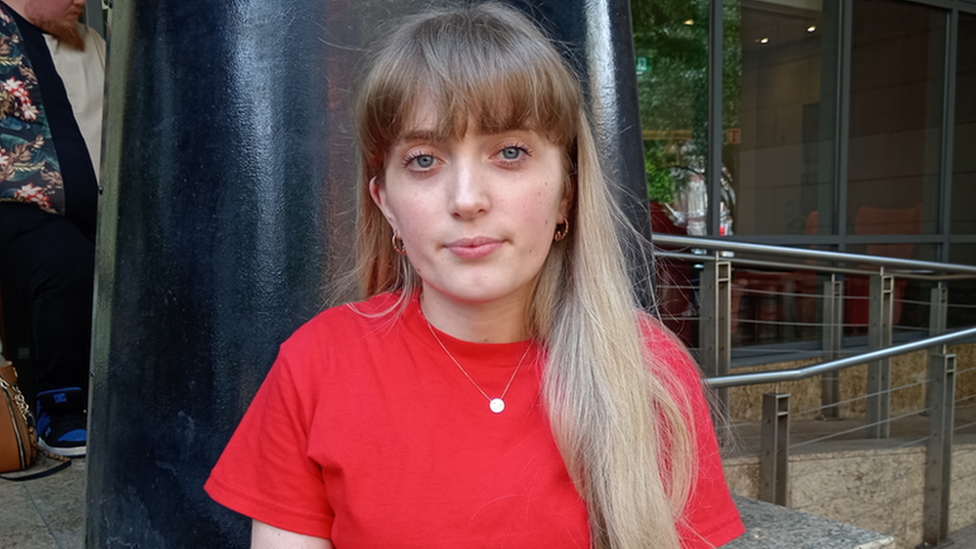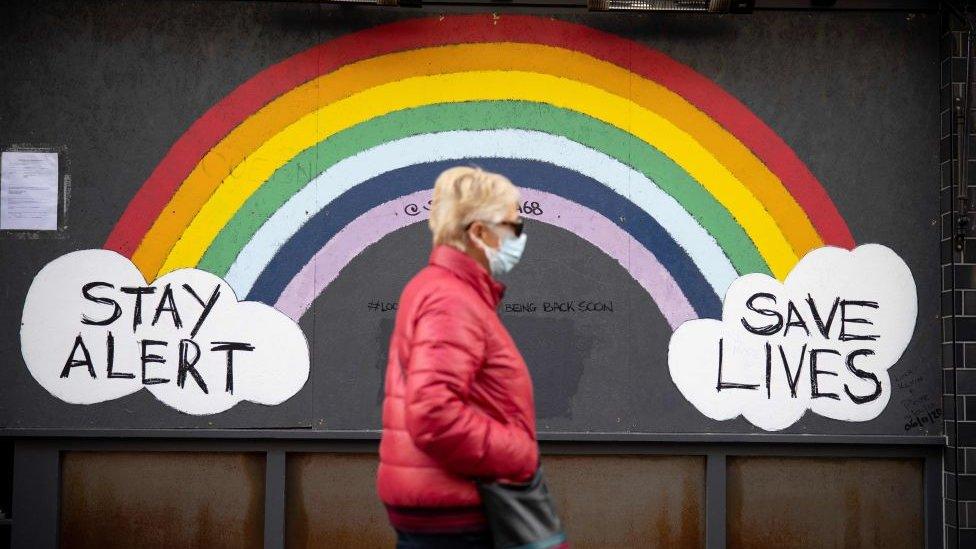NI's Covid response 'hampered by lack of government'
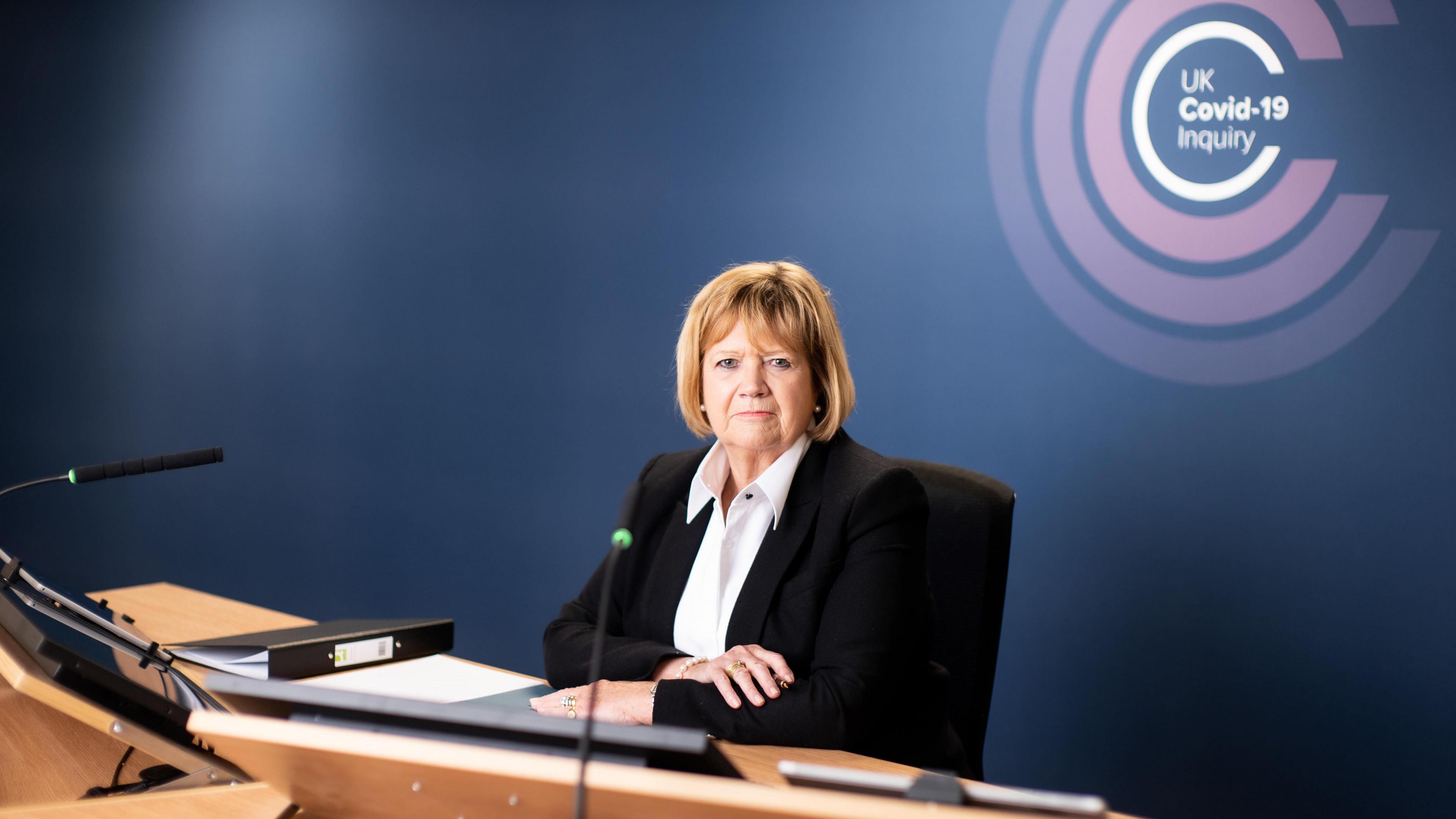
Baroness Hallett is chairing the UK Covid-19 Inquiry
- Published
Northern Ireland's readiness to deal with the Covid pandemic was hampered by the lack of a functioning government, the chair of the UK Covid-19 Inquiry has found.
Baroness Heather Hallett said the suspension of power-sharing arrangements from 2017 to 2020 exacerbated problems with preparedness.
On Thursday, she delivered the first report from the inquiry, which found the UK government and devolved nations "failed their citizens" as they planned for the wrong pandemic.
During its hearings in Belfast, the inquiry examined the role of The Executive Office and other government departments in their response to the pandemic.
An 'unduly complex' system
Delivering the report, Baroness Hallett said the UK was "ill-prepared" to respond to a pandemic.
"There were serious errors on the part of the state and serious flaws in our civil emergency systems," she said.
"This cannot be allowed to happen again."
Referring to Northern Ireland in Thursday's report, she said: "The constitutional arrangements in Northern Ireland do not lend themselves to The Executive Office directing the work of other departments, and it is beyond this inquiry's remit to recommend changes to those arrangements.
"However, the overall aim of maintaining a complete overview of pandemic preparedness applies equally in Northern Ireland as in the rest of the UK."
She said while the Civil Contingencies Group and Department of Health were in charge of the pandemic response, there were "a number of other groups, sub-groups, tiers and sub-tiers, as well as re-organisations and re-brandings".
"As a result, the system in Northern Ireland had become unduly complex," said the chair.
The inquiry concluded that "insufficient action was taken" on a crucial warning prior to the pandemic about how unprepared Northern Ireland was for any emergency affecting the welfare of the population.
This was because the Department of Health had insufficient resources for sufficient planning, said the report.
It said Northern Ireland had fundamentally followed the UK-wide approach to risk assessments, and there were no updates to the NI Risk Assessment between 2013 and 2020.
Baroness Hallett said that in the future Northern Ireland and the other devolved nations should perform risk assessments specific to their own circumstances, as well as taking the wider UK approach.
She recommended that Northern Ireland takes part in a UK-wide pandemic response exercise every three years, and that the Executive submits a report to the Assembly on civil emergency preparedness every three years.
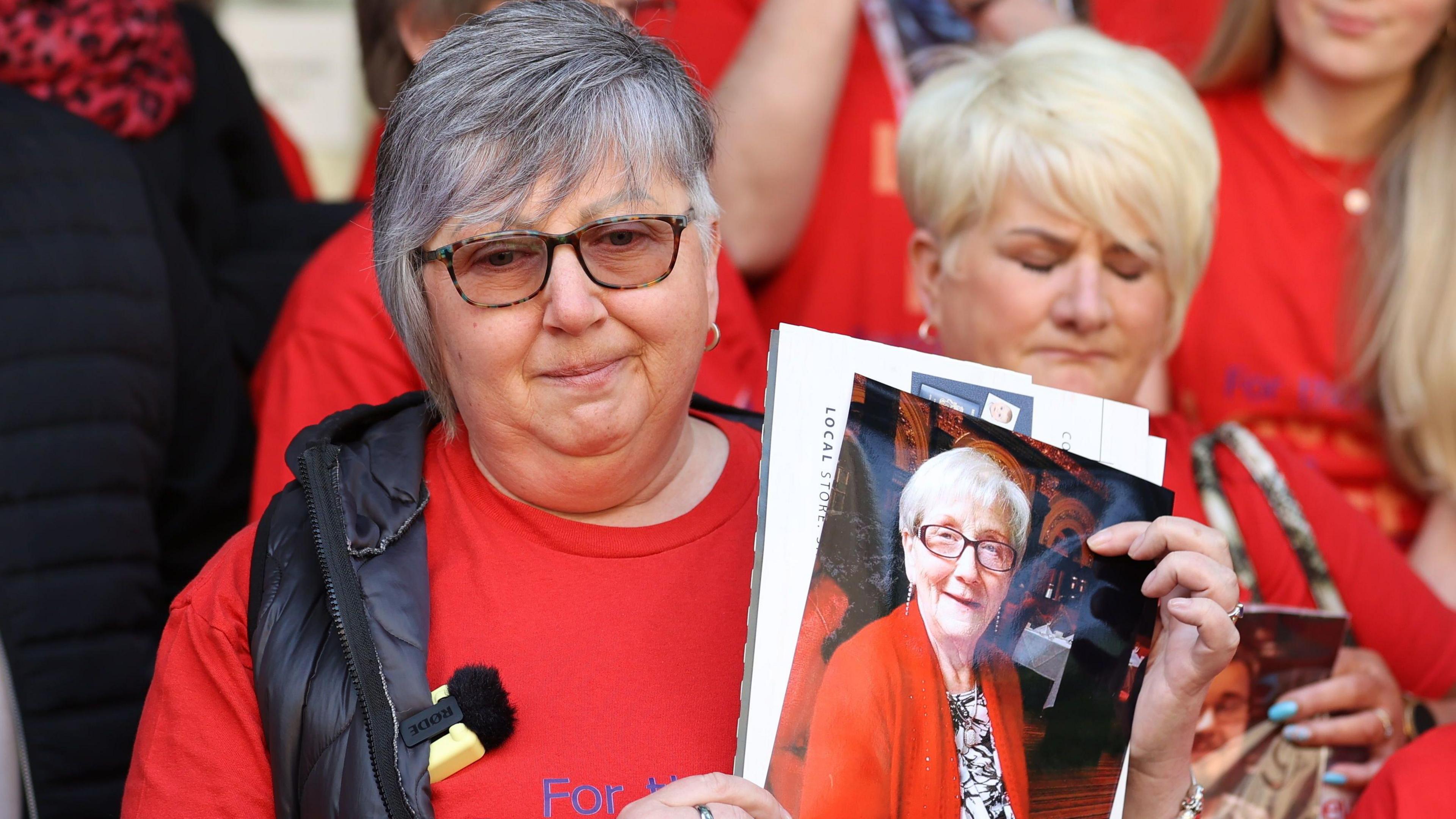
Brenda Doherty, pictured at an earlier date, whose mother, Ruth Burke, was the first woman to die in NI with Covid-19
Brenda Doherty's 82-year-old mother Ruth Burke was the first woman to die in Northern Ireland with Covid-19.
Ms Doherty described the report as a "positive step" but said there were "elements of the report that we would like built upon".
She said: "It clearly states how much we were failed by the UK government and the devolved governments" and that it "very much details the systems weren't suitable for what was needed".
Ms Doherty said she didn't feel that Baroness Hallett "pulled her punches when it came to looking at the failings and how we got there" and that "pleasantly surprised" her.
"This is why the inquiry is so important because we cannot be in this position again," Ms Doherty said.
"I look at my mum's wee smiling face and I know that she would be proud of what we have achieved so far," Ms Doherty told BBC NI.
The report provides "vindication"
Conal McGarrity, a solicitor representing Northern Ireland Covid-19 Bereaved Families for Justice, said the report provides “vindication”.
“It destroys the myth that some of these failures were in any way unforeseeable or avoidable. The report’s very clear on that.
“Given the extent of the failures, reform is going to have to be very radical indeed across all the devolved nations and it must start immediately.”
'Damning' report

Geraldine Treacy said the report is "damning" for the government
Geraldine Treacy lost her mother, who was a dementia patient in a care home in Belfast, in April 2020.
She told BBC News NI she was “initially pleased” with Baroness Hallett’s response, adding that she feels the report is “damning” and shows the lack of preparedness in the UK government and devolved nations.
“Baroness Hallett seemed quite strong in talking about the failings of the governments and government bodies," she said.
“Hopefully they will take it seriously and carry out the recommendations. She has said she will monitor it so hopefully if they have to answer they will do something about it.
“We’ve got a lot further to go but it’s first steps and it’s good steps.”
Michael Lusty, who lost his mother Peggy to Covid-19 in January 2021, said he thought the report was “quite hard-hitting”.
“When my mother died there was a lack of oxygen in the hospitals and that was in the second wave. That should never have been the case," he said.
“Our government, whether in Westminster or Northern Ireland, was nowhere near good enough."
Mr Lusty has called for lessons to be learned.
"As Baroness Hallett said, there will be another pandemic. It’s just question of when and we must be ready for the next one for our kids and their kids.”
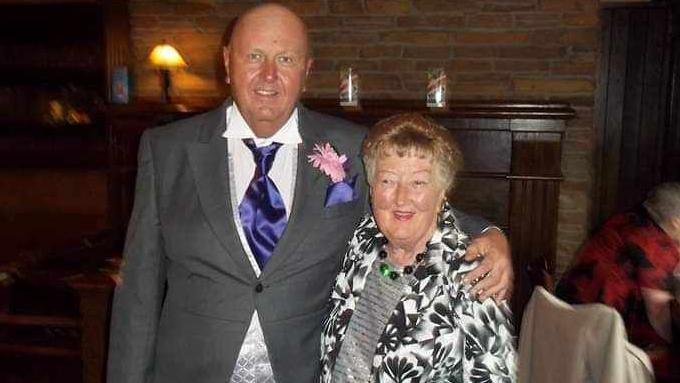
Michael Lusty with his mother Peggy
Anna Smyth, whose mother also died in a care home, said the report is “a good first step”.
“We’ll see how that goes – accountability, checking up, penalties, these are things that will make sure things are managed better in the future."

Anna Smyth said the report is a "first step"
She added that an inquiry is important "as long as we can trust those who are doing [it] and implementing the change".
"If we can trust these people to make good decisions, it’s a good step forward," she said.
"That remains to be seen. A lot of trust has been lost.”
What is the UK Covid-19 Inquiry?
The Covid-19 Inquiry, originally announced by former Prime Minister Boris Johnson, covers decision-making during the pandemic by the UK government and in Scotland, Wales and Northern Ireland.
There is no timescale for how long the inquiry will last - but hearings are scheduled until at least 2025.
Module one, which is considered in the first report, opened on 21 July 2022, and was designated to look into the UK's preparedness for the pandemic.
The module considered the whole system of civil emergencies including resourcing, risk management and pandemic readiness and scrutinised government decision-making relating to planning.
The report is the first of at least nine, which will look at everything from political decision-making to vaccines and the impact on children.
Earlier this year, the UK Covid Inquiry sat in Belfast, as part of module two of the inquiry.
During the hearings the key decisions of Northern Ireland's politicians and their advisers were scrutinised.
Related topics
- Published18 May 2024

- Published16 May 2024
